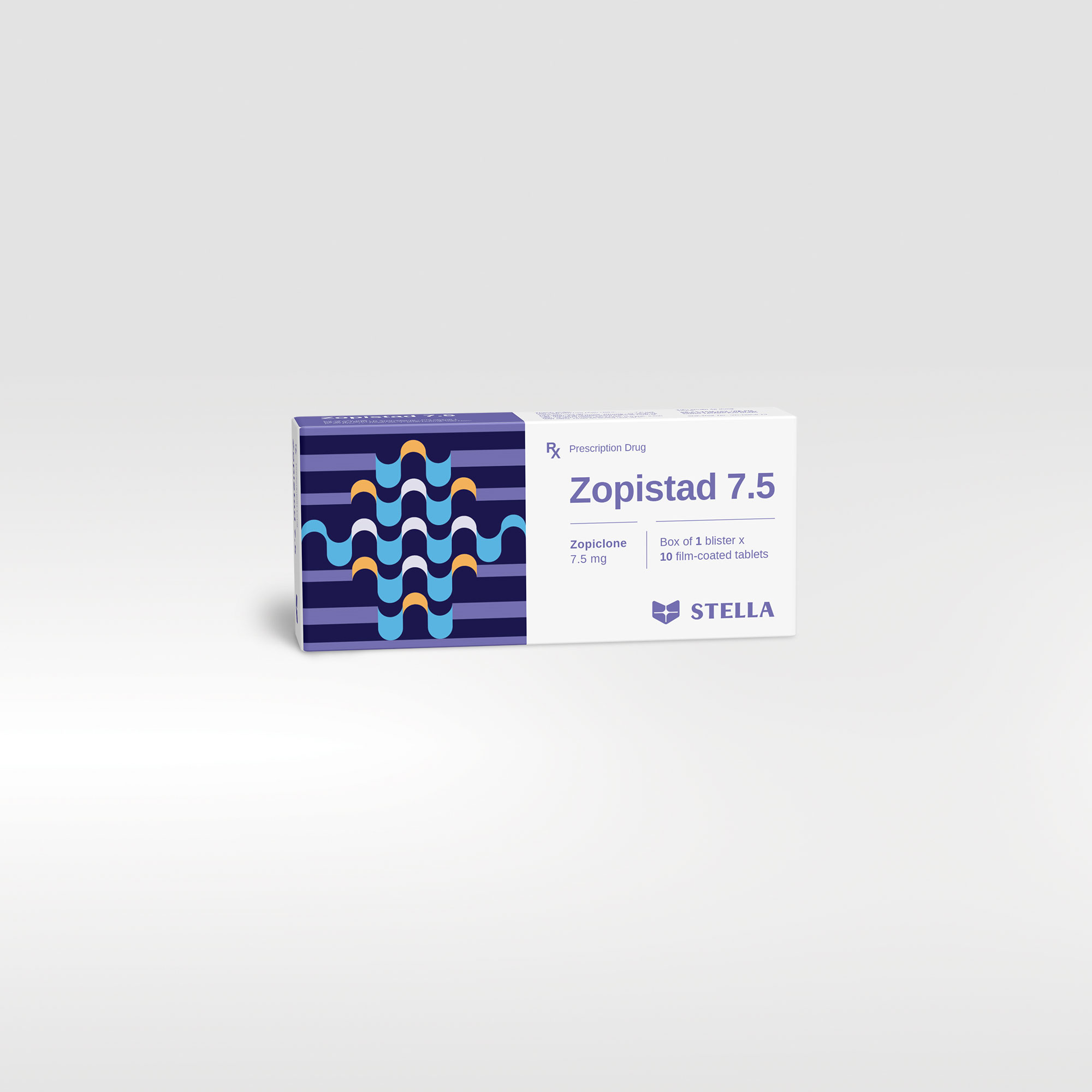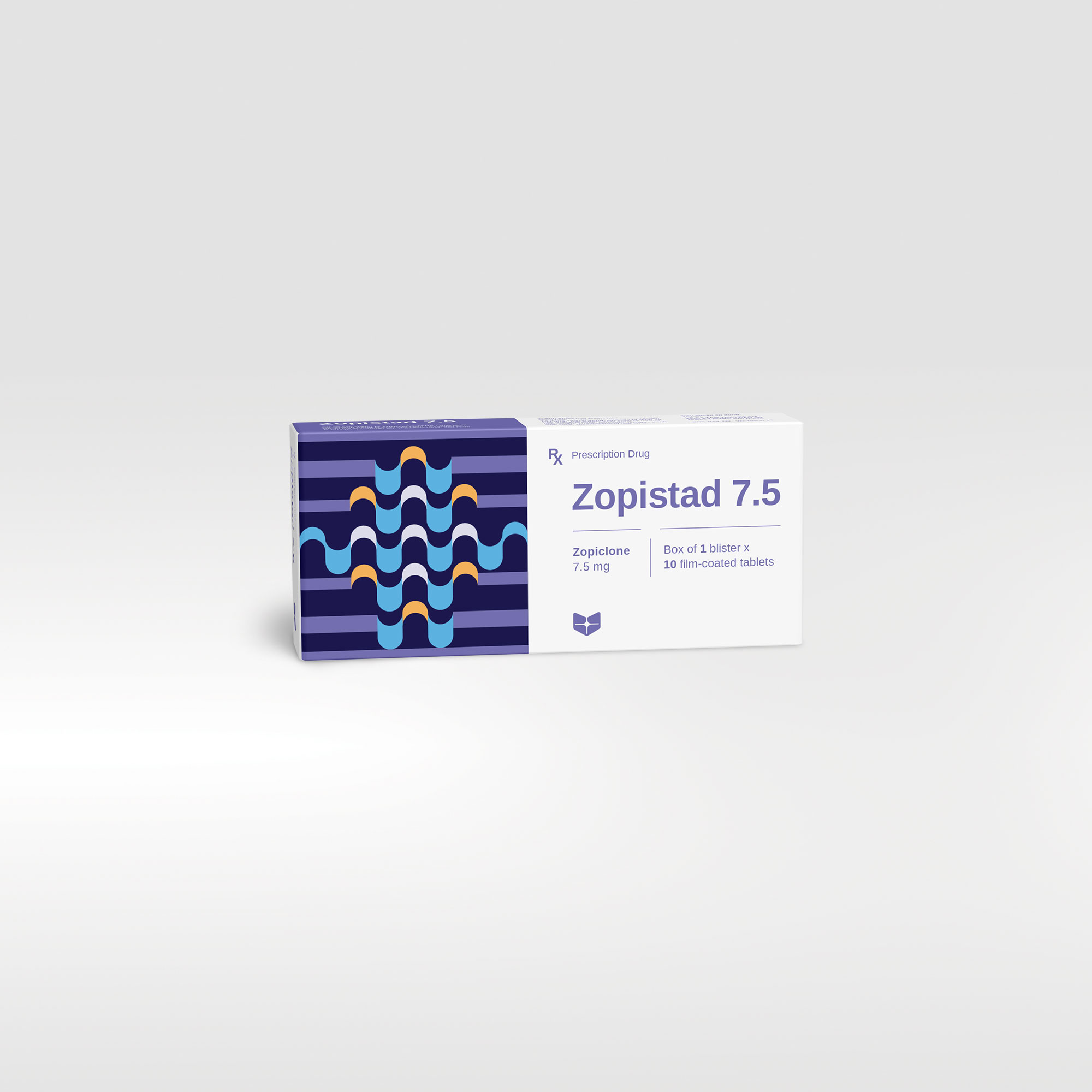Discontinuation of zopiclone should be strongly considered for patients who report of somnambulism and associated behaviours.
Patients should ensure that they take the tablet when certain of retiring for the night and they are able to have a full night’s sleep.
Zopiclone does not constitute a treatment for depression.
Rebound insomnia: Since the risk of withdrawal/rebound phenomena may be increased after prolonged treatment, or abrupt discontinuation of therapy, decreasing the dosage in a stepwise fashion may be helpful.
The risk of dependence is minimal when the duration of treatment is limited to not more than 4 weeks. The risk of dependence increases with dose and duration of treatment; it is also greater in patients with a history of alcohol and/ or drug abuse, or those who have marked personality disorders. The decision to use a hypnotic in such patients should be taken only with this clearly in mind. If physical dependence has developed, abrupt termination of treatment will be accompanied by withdrawal symptoms.
Patients with rare hereditary problems of galactose intolerance, total lactase deficiency or glucose – galactose malabsorption should not take Zopistad 7.5.
Zopistad 7.5 is not recommended for pregnant and nursing women.
Patients should be advised not to drive or operate machinery the day after treatment with Zopistad 7.5



